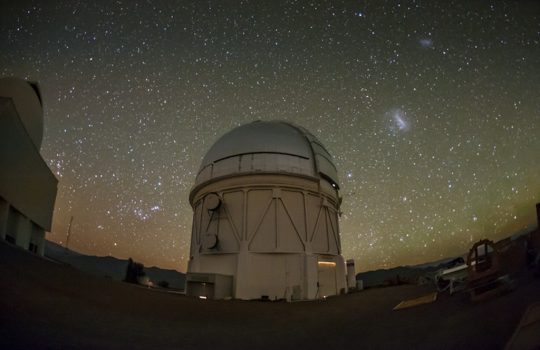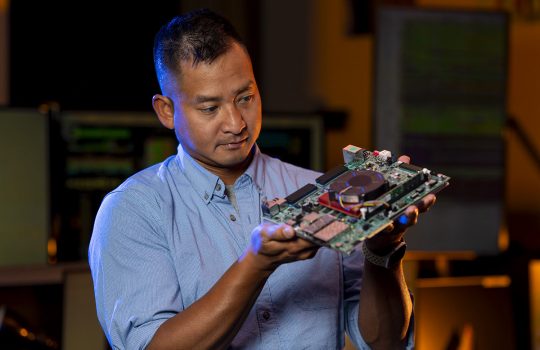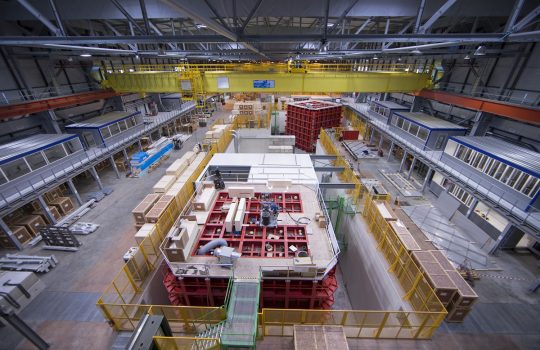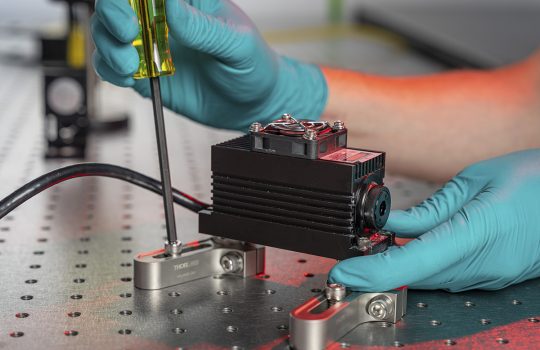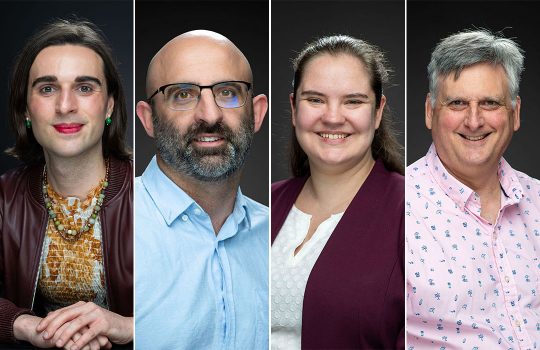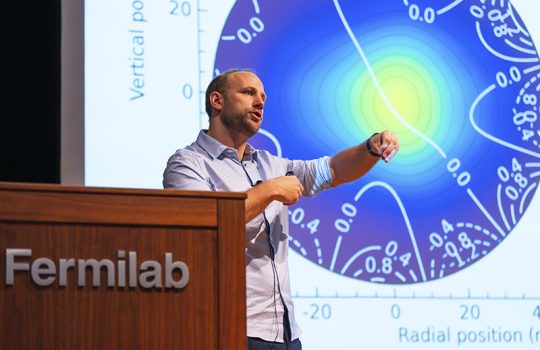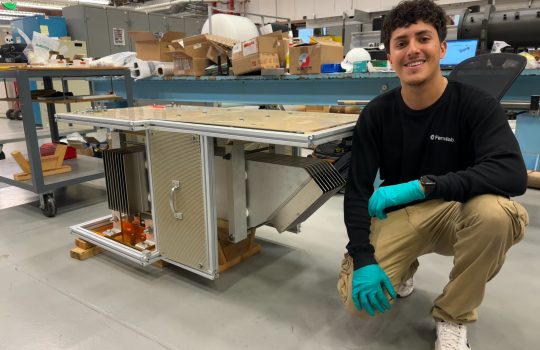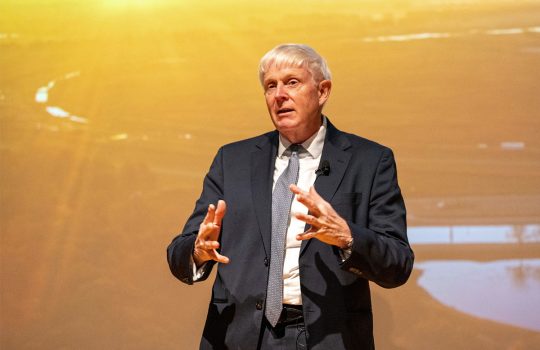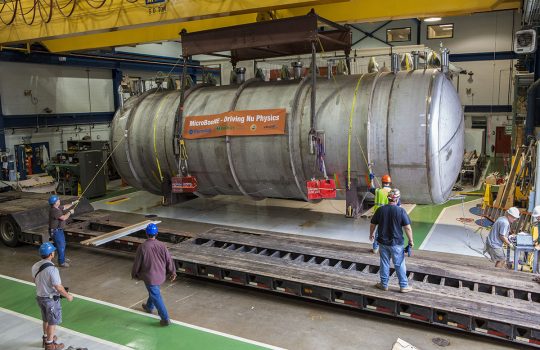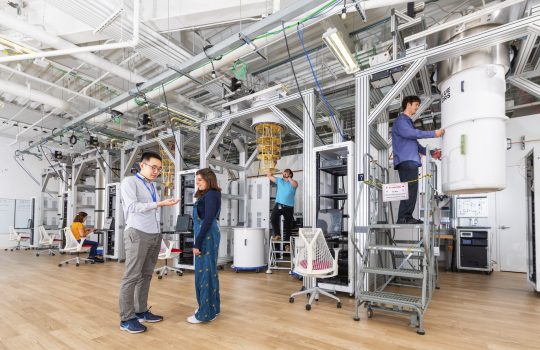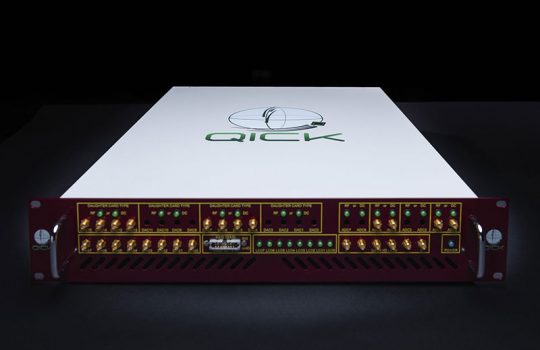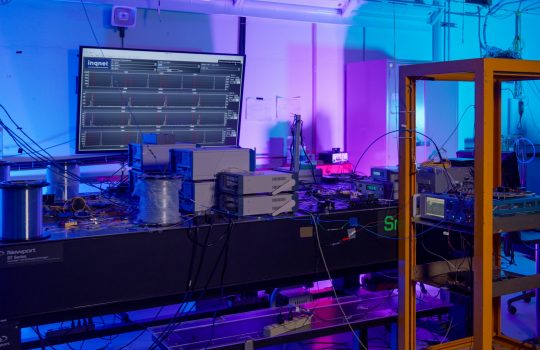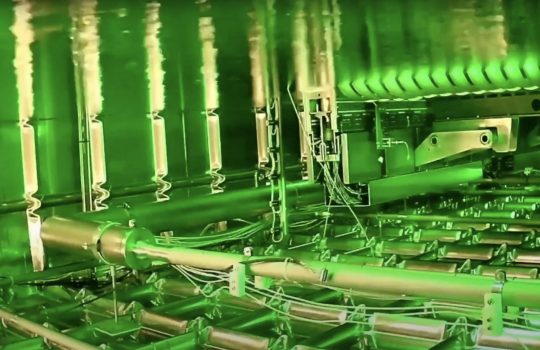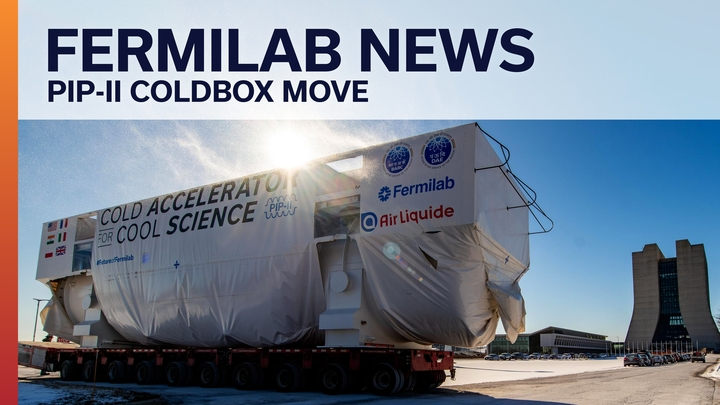Featured
Dark Energy Survey scientists release new analysis of how the universe expands
The latest results combined weak lensing and galaxy clustering and incorporated four dark energy probes from a single experiment for the first time.
Recent news
Trending topics
Fermilab’s SQMS Center funded with $125 million to shape the future of quantum information science
The SQMS Center enters a new era focused on scaling quantum systems from discovery to deployment — driving innovation in computation, communication and sensing.
Energy Department announces partnership with Fermilab and Qblox to manufacture foundational quantum control platform for U.S. research and innovation
The U.S. Department of Energy (DOE) today announced a partnership between Fermi National Accelerator Laboratory and Qblox, under which Qblox will coordinate manufacturing, distribution and support for the Quantum Instrumentation Control Kit (QICK) to advance U.S. quantum research and workforce development.
‘Squeezed light’ technology could accelerate path to quantum networking
Scientists at Fermilab and Caltech have demonstrated the feasibility of their method of using squeezed light to dramatically increase the rate at which quantum networks can generate entangled particle pairs over long distances. This advance addresses a critical bottleneck in building large-scale quantum networks.
Why choose liquid argon for DUNE detectors?
In its quest to understand why matter exists, the flagship neutrino experiment hosted by Fermilab is constructing an enormous next-generation liquid-argon-based detector a mile underground. The Deep Underground Neutrino Experiment is building on the successes of previous liquid-argon experiments, promising measurements of unprecedented precision over a wide range of energies that will bring significant new insights into the nature of the universe.
Featured video
In the news
Scientists just got the clearest picture of the dark universe yet: ‘Now the dream has come true’
The DES collaboration recently released six years worth of data collected by the Dark Energy Camera (DECam). The analysis represents the first time the four separate methods of studying dark energy have been united as one.
US turns gold mine into giant fridge to hold 15,000 tons of liquid argon at -303°F
A collaboration of scientists and engineers are tackling the colossal engineering challenge of building massive, super-cooled containers to hold liquid argon for the DUNE experiment.
Scientists Have Been Hunting This Elusive Particle for a Decade. It Doesn’t Exist
For the past decade, MicroBooNE researchers measured changes in neutrinos using two accelerator neutrino beams
US scientists complete laser lab for world’s largest vertical atom interferometer
A state-of-the-art experiment at Fermilab is one step closer to collecting experimental data with the completion of a laser laboratory that houses its advanced laser systems
Social media
More from particle physics

A communication resource from the world’s particle physics laboratories.

